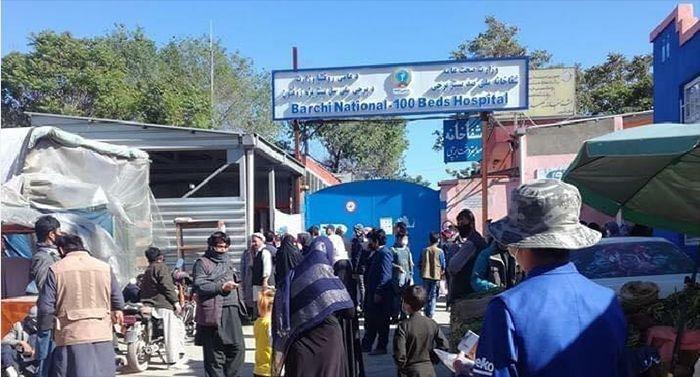Médecins Sans Frontières (MSF) has announced that it would withdraw from Dasht-e-Barchi, a western neighborhood of Kabul. The decision follows a deadly attack on a MSF-run maternity ward, which killed 24 people including 16 mothers, two children and a midwife.
The Islamic State of Khurasan Province (ISKP) claimed responsibility for the attack.
A press statement, released by MSF today, Monday, June 15, reads: “the decision comes with the understanding that while no information has emerged about the perpetrators or motive of the assault, mothers, babies and health staff were the deliberate targets of the attack, and that similar attacks may occur in the future.”
On May 13, President Ashraf Ghani, accompanied by his top security officials, paid a surprise visit to Barchi National 100 Beds Hospital. He vowed that the government would launch a probe into “heinous crime committed by terrorists” and help rebuild the building of the hospital.
“A month after the horrifying event, we know very little; the attack remains unclaimed. Afghan authorities blamed the Taliban – or Islamic Emirate of Afghanistan – who refuted and condemned the accusation, while representatives of foreign governments publicly pointed their finger at radical groups as perpetrators, namely Islamic State Khorasan province,” the statement says.
Thierry Allafort-Duverger, MSF Director General, says, as quoted in the statement, “We were aware that our presence in Dasht-e-Barchi carried risks, but we just couldn’t believe that someone would take advantage of the absolute vulnerability of women about to give birth to murder them and their babies.” “But it did happen,” he noted.
The end of MSF’s activities in the maternity wing of Dasht-e-Barchi hospital is a necessary but painful decision, fraught with consequences for more than one million people who live in the area. Most of them are from the Hazara community, a historically marginalized and poor population, many of whom were displaced by decades of conflict, the statement says.




